
it is a test performed on DNA extracted from a peripheral blood sample with the aim of evaluating the genetic predisposition to the development of some hereditary forms of cancer. The method is based on next generation sequencing (Next Generation Sequencing) of genes usually associated with an increased risk of cancer.
The scientific bases
Genes tested with MyChech Cancer encode important proteins in cell cycle control and DNA repair processes from various sources of damage; therefore play a key role in ensuring the stability of cellular genetic material. A mutation in these genes can cause the absence or malfunction of their respective protein products, leading to failure to repair damaged DNA and uncontrolled cell growth.
As a result, cells are more likely to develop further genetic alterations that can lead to cancer. In the table below the genes are grouped according to the type of hereditary tumor with respect to which the predisposition is to be evaluated.
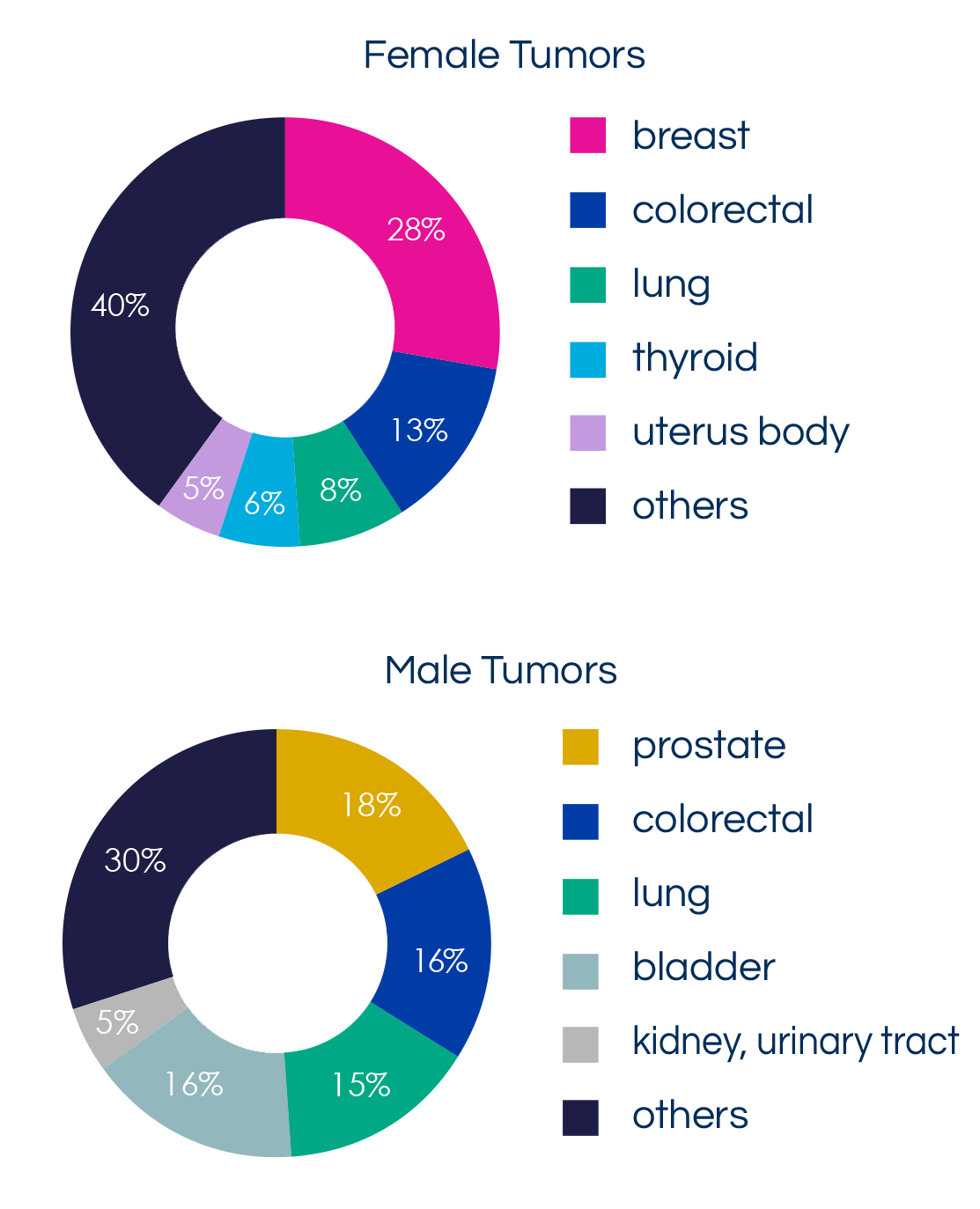
Hereditary tumors
in 5-10% of cases, tumors are attributable to hereditary forms, when their appearance is due to a mutation transmitted by the parents (germline mutation).
Why do the MyCheck Cancer
Children are 50% likely to inherit germline mutations in their parents and, with them, the predisposition to develop the tumor associated with that alteration.
The early identification of subjects that have such mutations allows, on the one hand, the start of a comparison between patient and doctor regarding reproductive choices, the execution of more in-depth screening or the possible surgical options, on the other, the launch of an oncological prevention program based on the monitoring of genetic stability.
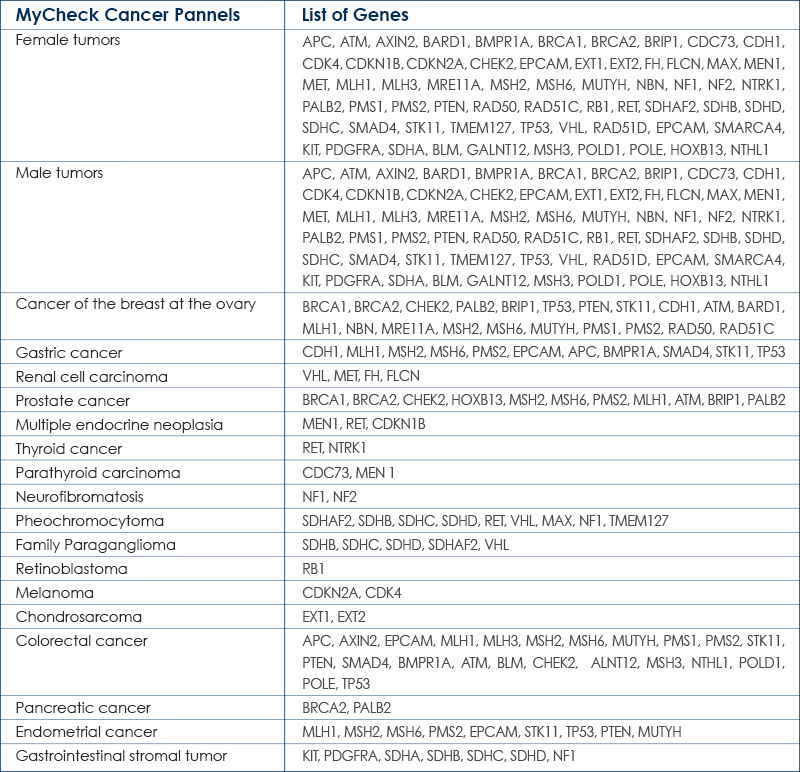
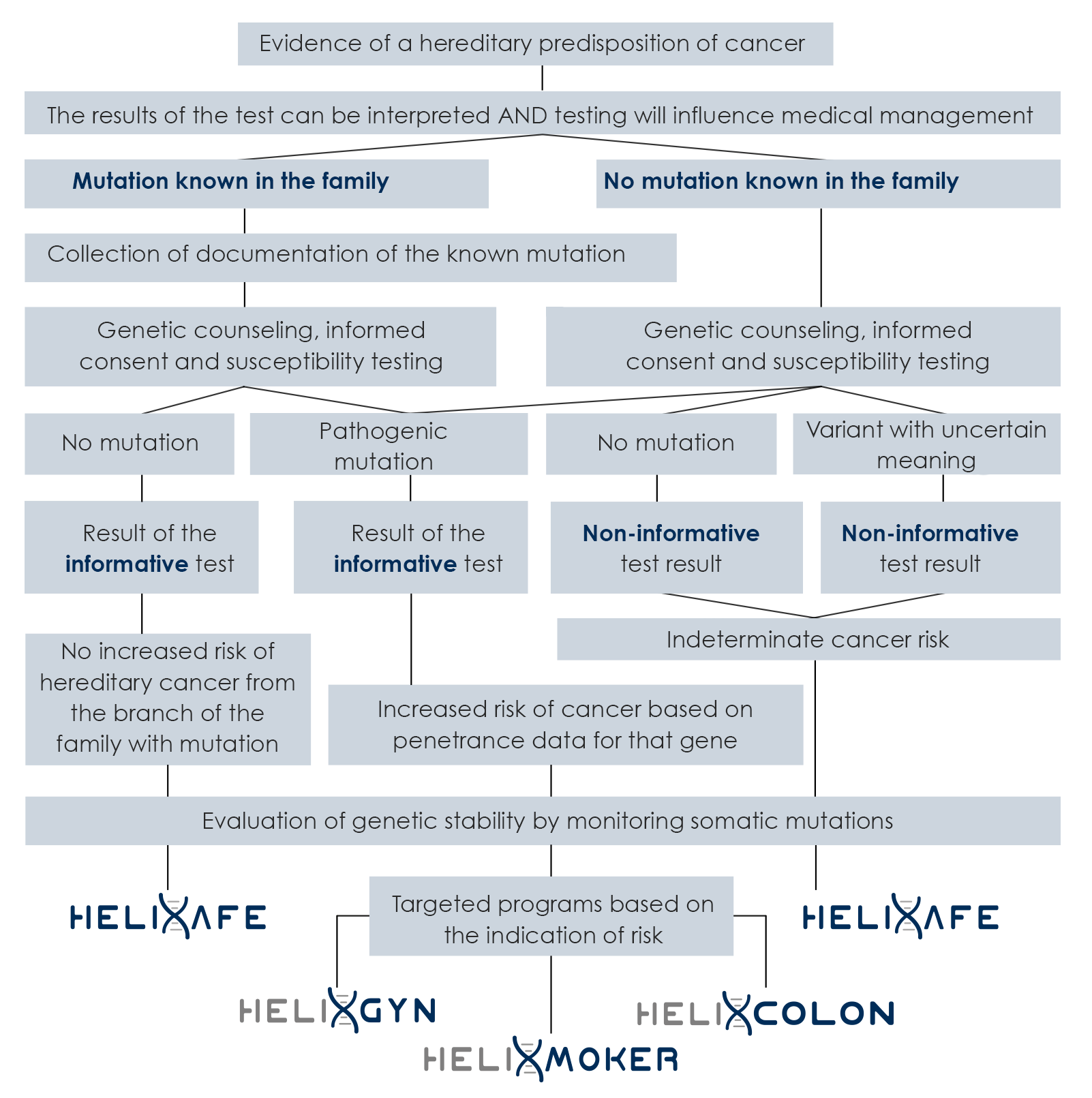
What is the MyCheck Breast
It is a susceptibility test performed on the DNA extracted from a peripheral blood sample with the aim of assessing the predisposition to breast and ovarian tumors.
The method is based on the sequencing of 21 genes, including BRCA1 and BRCA2, usually associated with an increased risk of ovarian cancer and breast cancer which, in these cases, tends to develop at a younger age.
Some people are at greater risk of developing cancer than the general population due to some subjective factors, including a family history of cancer. The increased risk may be due to an inherited genetic defect (mutation); the early identification of subjects that have such mutations allows, on the one hand, to activate cancer prevention programs, entering high-risk surveillance programs and taking advantage of a greater control than the general population, on the other, to start a comparison between patient and doctor regarding reproductive choices, the execution of more in-depth investigations or possibly viable surgical options (bilateral mastectomy and bilateral ovariectomy).
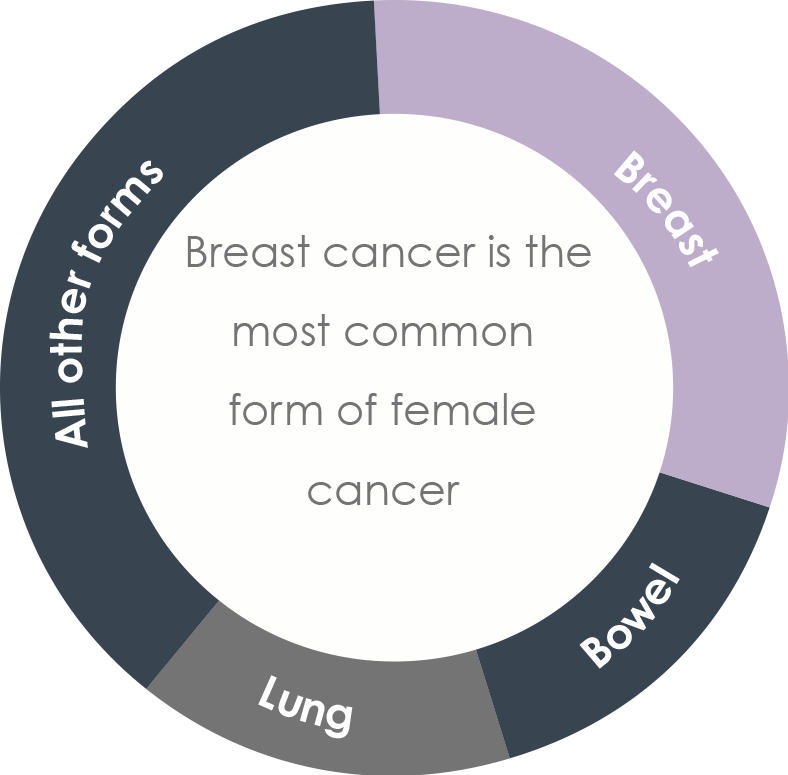
Genetic mutations
Genes tested with MyCheckBreast are tumor suppressors that encode important proteins in DNA repair processes from damage of various origins and therefore play a key role in ensuring the stability of cellular genetic material. The mutation of one of these genes can cause the absence or malfunction of the respective protein products, leading to failure to repair the damaged DNA. As a result, cells are more likely to develop further genetic alterations that can result in cancer. Germline mutations in the genes included in the MyCheckBreast panel are responsible for hereditary breast and ovarian cancer (HBOC) syndrome, characterized by an increased risk of development not only of breast and / or ovarian cancer, but also of the pancreas and to the prostate. These mutations are inherited in an autosomal dominant form: the possibility that they are transmitted to the offspring is 50%.
The predisposition increases the risk
About 1 in 8 women receive a breast cancer diagnosis (in men, 1 in 868); for ovarian cancer, the probability is 1 in 50. These neoplastic forms are in 5-10% of cases of hereditary nature.
Mutations in BRCA1 and BRCA2 genes are associated with most hereditary cases of early-onset or ovarian cancer of breast cancer, and also 3-4% of all other cases of breast cancer. Over the lifetime, women with a mutation in the BRCA1 gene have up to 65% probability (compared to 12% of the general population) to develop breast cancer and up to 39% (compared to 1.4% of the general population) to develop ovarian cancer. With mutations in the BRCA2 gene, however, the percentages are 25-40% for breast cancer and 10-20% for ovarian cancer.
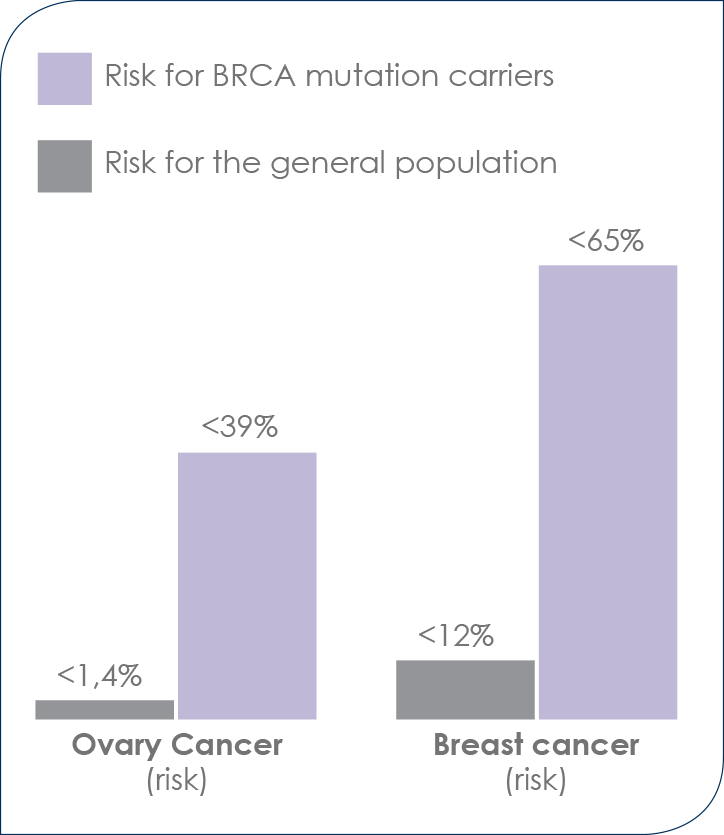
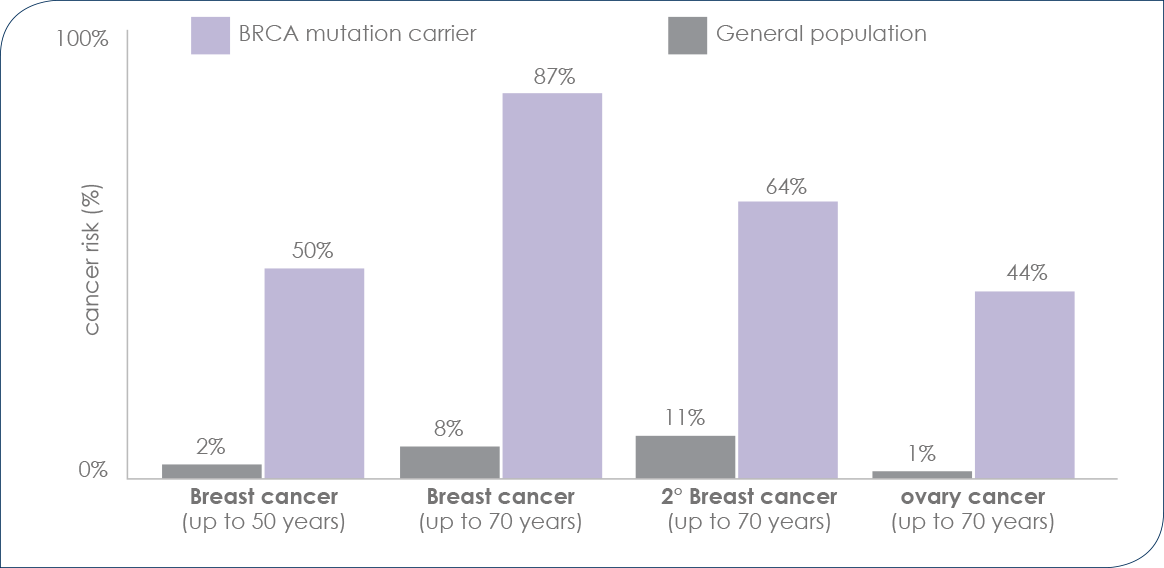
Approximately 40/45% of breast cancer cases are caused by mutations in BRCA1 and BRCA2 genes and 80% of patients with a family history of breast cancer are carriers of BRCA1 and 2 mutations.
Clinical benefits of the MyCheck Breast
• Improve the therapeutic results for patients, identified as carriers of mutations, thanks to targeted prevention and early intervention
• Determine the genetic causes of breast and / or ovarian cancer in one's own family
MyCheck Breast is particularly indicated for:
• Patients with a family history of breast and / or ovarian cancer
• Women with cases of breast cancer diagnosed before age 35 (ovarian cancer before age 40) or who have had multiple cases of breast and / or ovarian cancer
• Diagnosis of breast cancer in male subjects, regardless of age of onset
• Presence of a mutation known in the family environment
• Women who want to have a personalized assessment of the predisposition to hereditary forms of breast and ovarian cancer

